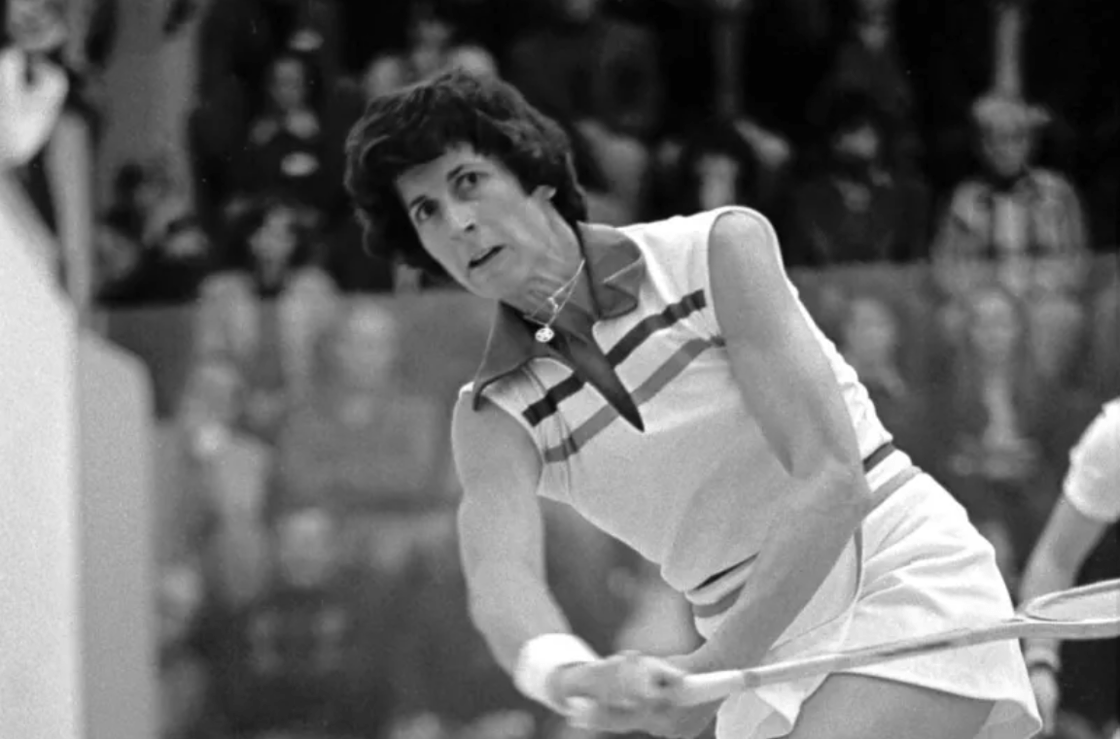A while back, I wrote up a newsletter about some of my favourite World No.1s throughout the history of squash.
One of those big names I touched upon was Heather McKay.
I did know of Heather's primary achievements before I wrote that newsletter, however, while writing it, I found out a whole lot more about the Australian legend.
Since then, I've been wanting to write up a focused player profile on Heather to go into some more depth on her life, career, and accolades.
Well, I've decided that this week is the week!
I don't think that Heather gets enough of a mention when it comes to discussing the legends of the sport, so, if you're unfamiliar with her, I'd highly recommend reading on (prepare to be wowed)...
History Of Heather McKay
Now, please don't take the following as gospel. I've done quite a bit of researching and scouring the web for this information, however, that doesn't mean that it's all 100% accurate.
I've tried my absolute best to get correct information in here, but, if you're reading this and no for a fact that I've got something wrong, please please please drop an email and let me know.
When I come to put this newsletter on our website's squash blog, I'll make sure to amend the information.
Anyway...
Heather Pamela McKay (born Heather Blundell) was born on July 31, 1941, in Queanbeyan, New South Wales, Australia, the eighth of a large eleven children in a family that heavily valued athleticism.
Her father was a baker, and her mother managed the household.
Encouraged by her parents, Heather was always into a wide variety of sports, whether that was playing tennis in the summer or playing field hockey in the winter.
At 18, Heather initially took up squash to boost her fitness for field hockey.
Despite lacking formal coaching, she quickly excelled, winning both the junior and women's titles at the New South Wales Country Championship.
This success caught the attention of the Australian Squash Association, leading her to compete in the 1960 New South Wales Championships in Sydney, where she won the junior tournament and reached the women's quarterfinals, losing out to Yvonne West.
Heather's name was starting to become more well-known at this point.
A little side note, in 1965, Heather married Brian McKay, which is when she adopted his surname.
Anyway, recognising her potential, McKay moved to Sydney to focus on squash, supported by sponsors and mentors.
She worked at the Bellevue Hill Squash Club, where she received guidance from experienced players and coaches, honing her skills and trying to deepen her understanding of the game.
This laid the groundwork for what would turn into one of the most unbelievable squash careers of all time.
Early Squash Career
Heather McKay’s rise in squash was pretty rapid.
After moving to Sydney in 1960, she immersed herself in the competitive squash scene, training daily while she worked.
Surrounded by great squash minds, she did a superb job of refining her technique and tactical game, quickly bridging the gap from natural talent to practiced competency.
In 1962, Heather made her first trip overseas, representing Australia in international tournaments.
Competing on unfamiliar courts against experienced opponents, Heather showed signs of the champion she would become.
Disciplined, unshakable, and hungry to improve.
These formative years laid the foundation for her transition into a full-fledged professional, setting the stage for a reign that would soon change the sport forever.
I couldn't find a lot more about Heather's early squash career, however, it's her main professional career that solidified McKay as one of the best, and most accomplished, squash players that ever lived...
Why Heather Could Be The Best Player Of All Time
Heather McKay’s career wasn’t just dominant, it was nearly flawless.
From the early 1960s through the late 1970s, she was an unstoppable force in women’s squash, losing only two matches in her entire career.
Let that sink in.
Both losses came early, the first being that one I mentioned further up to Yvonne West in 1960 in the quarterfinals of the New South Wales Championships.
However, it was the second defeat that's the most infamous.
After losing to England's Fran Marshall in the 1962 Scottish Open final, Heather famously declared that no one would ever beat her again.
She wasn’t bluffing.
From 1962 to 1977, McKay won 16 consecutive British Open titles, a record that still stands untouched.
Back then, the British Open was essentially the unofficial World Championship, and Heather made it her own. Match after match, year after year, she dismantled the competition with precision, grace, and a relentless mental edge.
The lack of official world rankings during her prime years (they weren’t introduced until 1983, two years after her retirement) means McKay never had a number next to her name.
But to anyone who watched her play or faced her across the court, there was no doubt that she was the best in the world.
Heather also won 14 consecutive Australian titles (1960-1973) and 2 official World Championships (1976, 1979).
If squash greatness is measured by dominance, longevity, and cross-sport success, it’s hard to argue against Heather McKay as one of the greatest of all time.
Of course, names like Jahangir Khan and Jansher Khan also come to mind as being the best players ever, and there are indeed arguments to be made for a lot of famous squash players throughout history being the best.
I just want to make sure that Heather's name is on the table in this debate, too!

Heather's Style Of Play
Heather McKay’s dominance on the court wasn’t built on brute strength or explosive pace, it was rooted in control, precision, and near-flawless execution.
Her game was understated yet relentless.
While others might have relied on raw athleticism or accurate winners, McKay’s approach was more like a tactical chess master.
She moved with superb efficiency, gliding across the court rather than sprinting around it.
Her footwork was impeccable, always in the right place at the right time, never rushed, never off balance.
Opponents didn't struggle against the Australian because she hit harder or ran faster, but because she made so few mistakes. Every shot had a purpose, and every rally was played on her terms.
Her consistency was awesome.
She rarely gave away cheap points, and her unrelenting accuracy wore opponents down. McKay would take as long as she needed to probe for openings, calmly outmaneuvering her rivals until they cracked under the pressure.
Her length control was also elite, which has always been vital in squash. Pinning players at the back and then exploiting space with surgical drops and volleys was what Heather did best.
McKay had an incredible ability to read her opponent’s intentions and adjust her positioning instinctively. She dictated tempo not through pace but by denying her opponents rhythm.
Nothing flashy, just smart, deliberate squash executed with mechanical precision.
It’s no surprise that many of her toughest opponents describe the experience not as a physical battle but as psychological warfare.
We already know what Heather's mindset was like, just imagine facing someone with that level of confidence in a professional match! It must have been pretty daunting...
Trying to beat Heather wasn’t just about hitting better shots; it was about surviving her relentless control long enough to even get a chance.
Rivalries
I do often like to write about rivalries in these player profile-type articles, however, after a bit of research, I quickly learned that it might be more difficult than I expected for Heather McKay.
One of the most telling aspects of her career is how few genuine rivals she had.
Not because the competition wasn’t strong, but because she was just that far ahead of everyone else.
Marion Jackman and Sue Newman were perhaps her most notable challengers during the 1960s and 1970s.
Jackman, a fellow Australian, was a formidable opponent in her own right, physically tough, technically sound, and consistently one of the best players in the world.
But even she couldn't break through McKay’s wall of dominance.
They faced off several times in high-stakes matches, but the outcome was almost always the same: McKay would win, often comfortably.
Sue Newman, from England, also put up a fight during the same era.
Like Jackman, Newman was one of the top-ranked players of the time and brought a strong, tactical game to the court.
But again, McKay’s consistency, movement, and match intelligence proved too much. Even on days when her opponents played well, Heather simply didn’t give them enough opportunities to win.
And just to reinforce how far ahead of her time she was: after retiring from squash, McKay took up racquetball, a completely different sport, and within a few years became a world champion in that too.
It’s hard to imagine a clearer example of an athlete who simply outclassed her competition, across multiple disciplines.
What a legend!
Final Thoughts: Will We Ever Have Another Heather McKay?
Honestly? Probably not.
Heather McKay’s level of dominance is something we just don’t see in professional sport, let alone squash, anymore.
To go nearly two decades without losing a match, to win 16 British Open titles in a row, and to retire unbeatable... It’s hard to wrap your head around.
It wasn’t just a hot streak, it was a full era.
Today’s game is faster, deeper, and more competitive than ever, and while that’s brilliant for fans, it also means nobody is likely to hold the same kind of stranglehold Heather did.
The margins are thinner, the field is broader, and the level is incredibly high across the board.
But that’s what makes her legacy so special.
Heather wasn’t just the best in her time, she was in a league of her own and she's left her stamp on the sport that will certainly stand the test of time.
Will we ever see another Heather McKay? Probably not. And that’s okay.
Because the sport doesn’t need another, we just need to make sure to keep telling her story!
This article was taken from our On The 'T' Newsletter, if you're interested in receiving more content like this, please feel free to sign up using the subscribe section located at the bottom left of this page (or underneath the article if you're on mobile), thanks!
